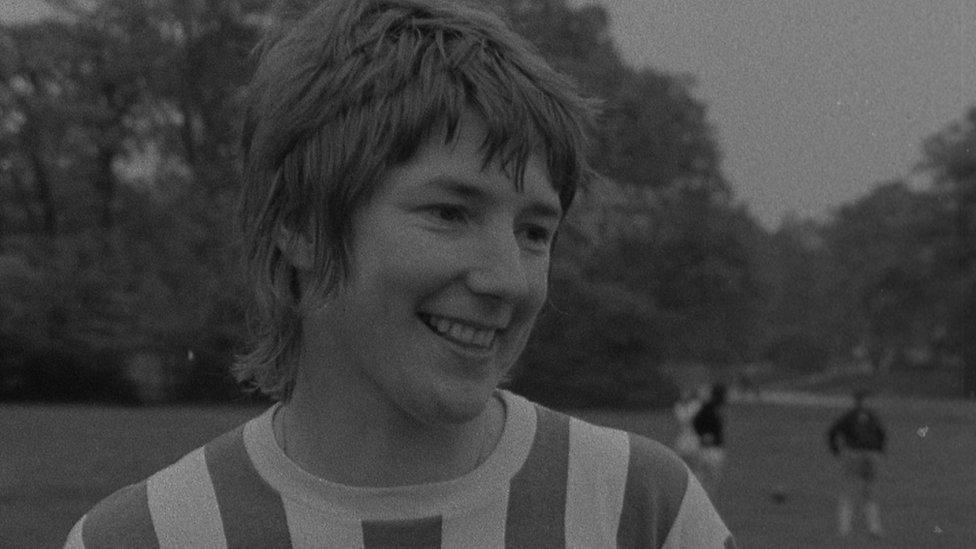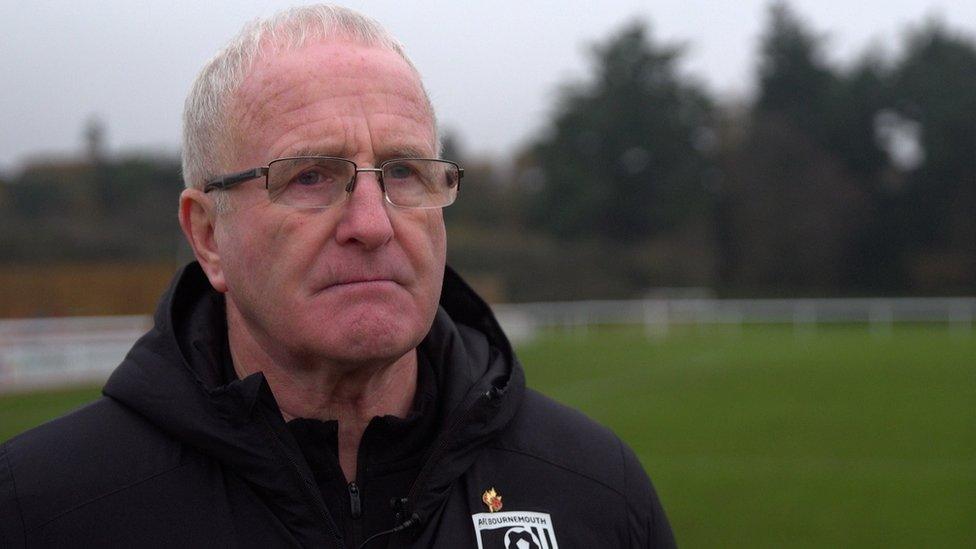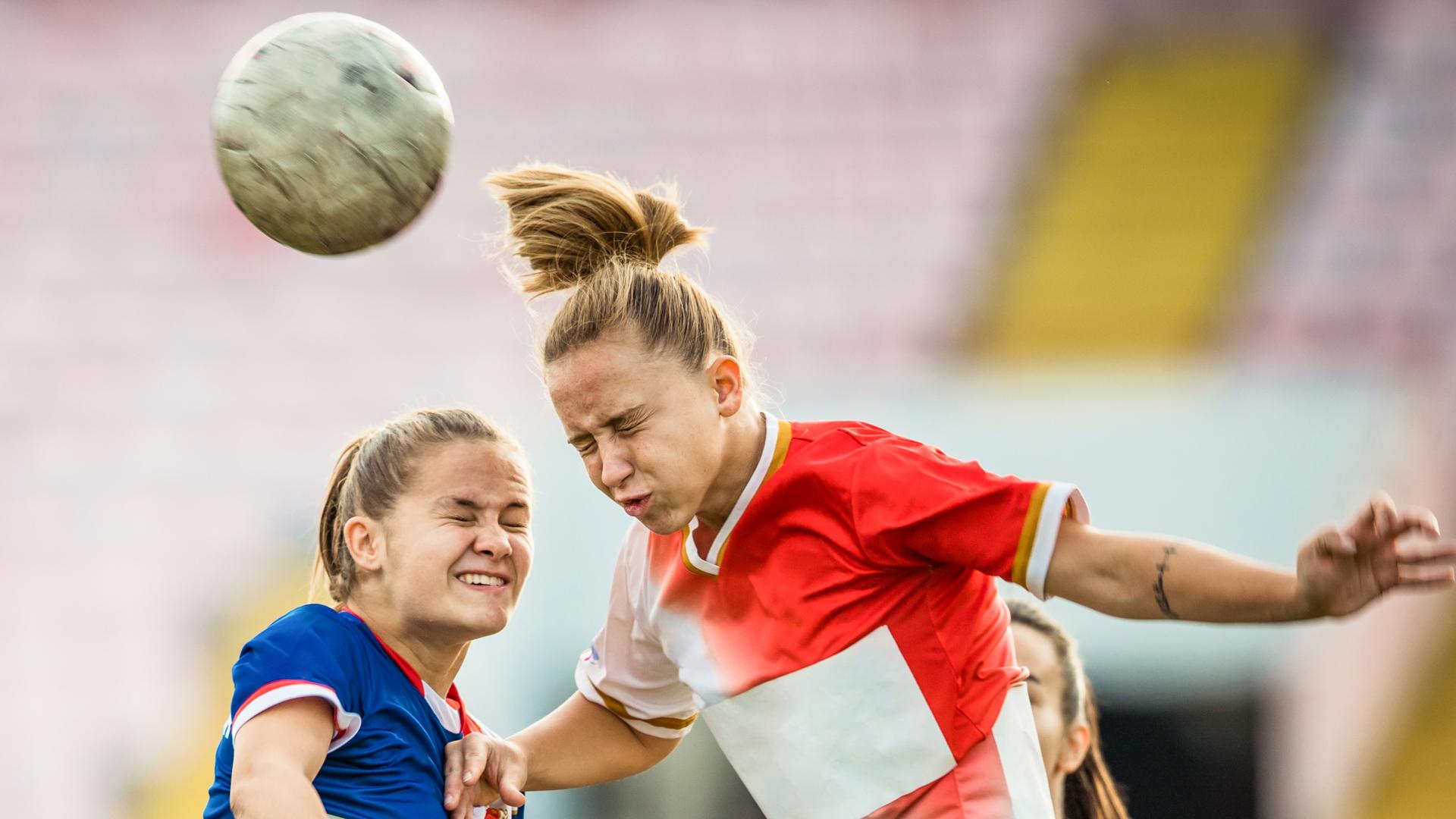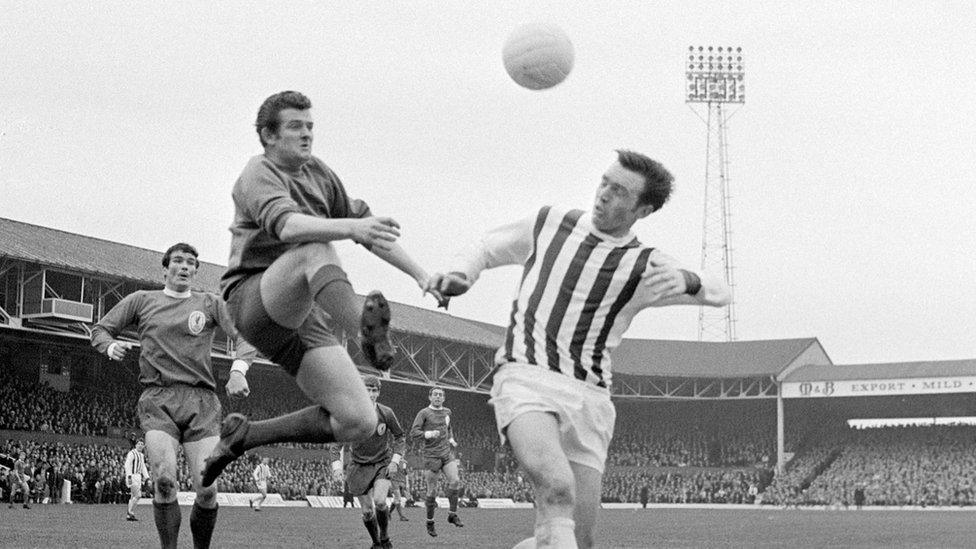Ex-England women's footballer blames dementia on heading
- Published
Sue Lopez wants young footballers to stop heading the ball
A pioneer of women's football has become the first female player to publicly blame her dementia on years of heading the ball.
Sue Lopez, 74, was the first British woman to play semi-professionally abroad and represented England 22 times during a career spanning three decades.
She said she wanted young footballers to stop heading the ball amid research suggesting women concussed more easily.
The FA said there was not enough evidence to change the game's rules.
Lopez, who spent the majority of her playing career at Southampton and spent a season at Roma, told the BBC she felt "sick" when she was given her diagnosis in 2018.
She said heading the ball resulted in her suffering several concussions during her time competing at the top level between 1966 and 1985.
"I think my dementia has been caused by the heading of a football," added Lopez, who was made an MBE in 2000 for services to women's football.
"I'm always hoping people are being more careful now, not letting young kids head the ball."

Lopez, pictured in 1972, spent the majority of her 19-year career playing for Southampton
Lopez's plea has come after a study in 2019 found former professionals were three-and-a half times more likely to die of dementia than the general population.
The study began after the family of former West Bromwich Albion striker Jeff Astle campaigned for the football authorities to launch a comprehensive research programme.
His family said they were relieved the study eventually went ahead after research by the FA and PFA was initially dropped because of what were said to be technical flaws.
Former England international Astle died aged 59 in 2002 and the inquest into his death found heading heavy leather footballs repeatedly had contributed to trauma to his brain.
Astle's case was then highlighted by former England captain Alan Shearer in a 2017 BBC documentary.

Heading ban for youth players
AFC Bournemouth was the only Premier League club of all 20 approached by the BBC to confirm it had banned players under 12 years old from heading.
Academy manager Joe Roach said the changes were made following last year's study.
"We've got to appreciate what occurred with certain players that has been well publicised," he said.
"Why would we not do it?"
The Scottish FA is expected to announce a ban on under-12s heading the ball in training later this month.

Joe Roach said under-12s at AFC Bournemouth no longer head the ball

Campaign group Pink Concussions claimed the problem may be even more significant for female players.
Founder Katherine Price Snedaker said women experienced concussion differently to men and their recovery tended to take longer.
"Women concuss at a higher rate," she said. "Women have more concussive symptoms, a more complex pattern of those symptoms and seem to feel more pain."
Dementia in football: Alan Shearer undergoes MRI scan
A spokesman for the FA said: "The study does not determine whether the cause is due to concussions suffered by the group of professional footballers, or concussion management, or heading of the football, or style of play, or the design and composition of footballs over the years, or personal lifestyle, or some other factor."
The FA said it was reissuing its current concussion guidelines and best-practice advice for coaching heading.
It added: "More research was needed into why players had been affected, but that there is not enough evidence at this stage to make other changes to the way the modern-day game is played."
See more on Inside Out South on BBC One in the south of England and BBC One HD on Monday 27 January at 19:30 GMT and on BBC iPlayer here.
- Published24 February 2020

- Published16 January 2020

- Published7 January 2020

- Attribution
- Published21 October 2019

- Published30 May 2018

- Attribution
- Published13 November 2017
